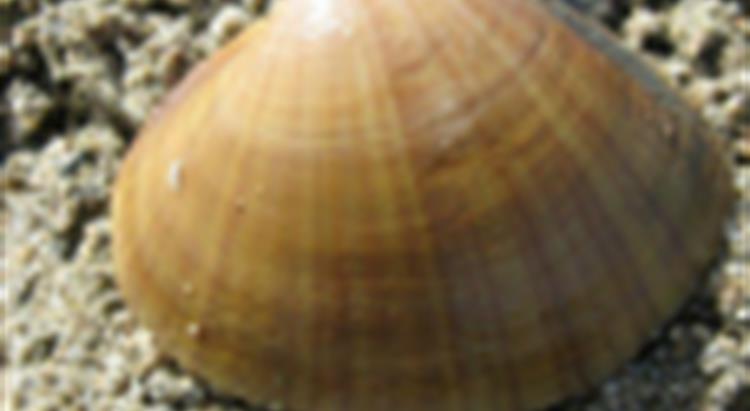16 September 2015

The Minister for Planning and Environment has taken immediate steps to protect an increasingly endangered shellfish.
The Mactra glauca, or Five Shilling Shell, is one of the Channel Island’s largest bi-valves. Recent reports suggest stocks have suffered a fall.
The Five Shilling Shell, named for the price Victorian collectors were willing to pay for it, is edible, but hasn’t traditionally been targeted by commercial low water fishermen because it's relatively scarce and low in value. Recently however, there have been reports of people taking large numbers of the shells.
Illegal to fish
After consultation with the Marine Resources Panel, Deputy Steve Luce, has asked the law officers to draft a change to the Conservation of Wildlife Law to make the Five Shilling Shell a protected species and illegal to fish.
The Minister said it was a priority for him to identify all marine resources that are under threat, and act quickly to safeguard them where necessary. “This species is under pressure, and the report I received late last week of a further drop in its population is very worrying.
“There is no doubt that some of our shellfish and wet fish stocks are struggling at the moment and it is my intention in the coming months to bring in legislation that will allow me to protect any threatened species where necessary. This will be done by a range of options, such as bag limits, size restrictions and other constraints,” said Deputy Luce.
Immediate action
He added “I fully respect the traditional rights of low water fishermen but the potential commercialisation of some of our low water shellfish stocks is a great concern. As the Minister responsible for fisheries it is my intention to safeguard all our marine resources and, in the future, I won’t hesitate to close down the fishing of any species that I consider is under serious threat.
“I hope that people will appreciate and respect the immediate action and tough stance being taken here, which is for the long term benefit of everyone. The total loss of any of our traditional low water species is not something that I am prepared to contemplate."